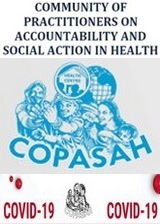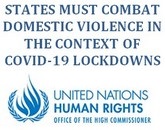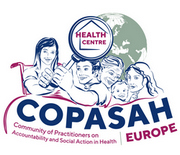The Republic of Macedonia, after 22 years since the independence, has failed to establish a legitimate, continuous and non-selective process of citizens’ participation in the operation of the local self-governments. After 15 years since the ratification of the European Charter of Local Self-Government and 8 years since the establishment of self-governing and independent units of the local self-government, the citizens of the Republic of Macedonia still only qualify as constituents and are not actively involved in the budget process or in the process of making decisions implemented at local level, although there are legal possibilities for this.
In the Municipality of Kocani, citizens are insufficiently informed about the composition, the operations and the organization of the executive and legislative government and the local public administration; they are not informed about the municipal budget and the local budget process; they are not involved in the process of making decisions of local interest nor they participate in the preparations of the municipal budget; they are not informed about the developments in the budget process nor are they involved in its implementation; they have no trust in the local government and are not satisfied with the circumstances at local level.
This document particularly points out to existing international, regional and national documents that regulate the right of the citizens to participate in the application of public duties and to be informed; the term and the practice of citizen participation in the budget process and the decision making process in Macedonia and globally, as well as findings and conclusions of the survey in the Municipality of Kocani; it also proposes solutions for involvement of the local population in the budgeting process and the process of making decisions at local level, as well as for increasing transparency and accountability of the local self-government units.
This analysis evaluates the significance of the Programme for Early Detection of Malignant Diseases, the commitments of the Government to promote the health of the female population and the strategic priorities of the state regarding health needs of the population.
By analyzing the financial planning and flow of funds from the budgets of the Ministry of Health, Health Care for Prevention, the Programme for Early Detection of Malignant Diseases and funds for implementation of activities for early detection and prevention of diseases of female reproductive organs (cervical cancer) and for implementation of the organized screening for breast cancer for the period between 2008 and 2012, the following faults were detected in the operations of the public services:
- The gap between expenditures and revenues in the Budget of the Ministry of Health is ever growing each budget year
- the Government of RM and the Ministry of Health each year provide less funds for preventive health care of the population
- funds for implementation of the Programme for Early Detection of Malignant Diseases are minor in comparison to the Central Budget, the Ministry of Health Budget and the budget for preventive health care.
- the budget for early detection, prevention and treatment of cervical and breast cancer is minor in comparison to the total planned expenditures of the Central Budget, the Ministry of Health Budget and the budget for preventive health care and is subjected to frequent changes.
- The Ministry of Health has failed to fully implement funds planned for preventive health care.
The Government has been adopting prevention programmes to cover free measures for early detection, prevention and treatment of cervical cancer and breast cancer for women in RM, however, only some use planned free services.
This analysis provides a brief overview of the findings from the monitoring of the implementation of programme activities and funds planned in the Programme for Early Detection of Malignant Diseases in RM for 2011, with a special focus on two programme components for early detection and prevention of the diseases of female reproductive organs (pilot screening for cervical cancer) and the component for organized screening for breast cancer.
Right to health is an internationally recognized right. For the first time it was defined by the World Health Organization as “right of every person to the best attainable physical and mental health“. The right to health is most closely related to the protection of patients’ rights which represents a sum of rights, responsibilities and obligations according to which patients request and receive health care.
Roma have equal right to access and use of the services which are provided within the network of medical institutions like any other citizen in Republic of Macedonia. Their marginalization in the societal and public life has also negative impact on the extent to which the rights regulated by the health laws are realized, among which priority is given to the Law on Health Care, Law on Health Insurance and Law on Protection of Patients’ Rights.

Right to health is an internationally recognized right. For the first time it was defined by the World Health Organization as “right of every person to the best attainable physical and mental health“. The right to health is most closely related to the protection of patients’ rights which represents a sum of rights, responsibilities and obligations according to which patients request and receive health care.
People who use drugs and people who are addicted to drugs should have equal access to quality and available health service, like all other citizens. The health of these people is at high risk, which includes overdose and death, spread of infectious diseases (HIV, Hepatitis B and C) and somatic and mental health disorders. Furthermore, as result of their marginalization, they do not have sufficient capacity to fight for the realization of their rights, and therefore it is necessary to take activities about information, protection and promotion of their rights as patients.

































